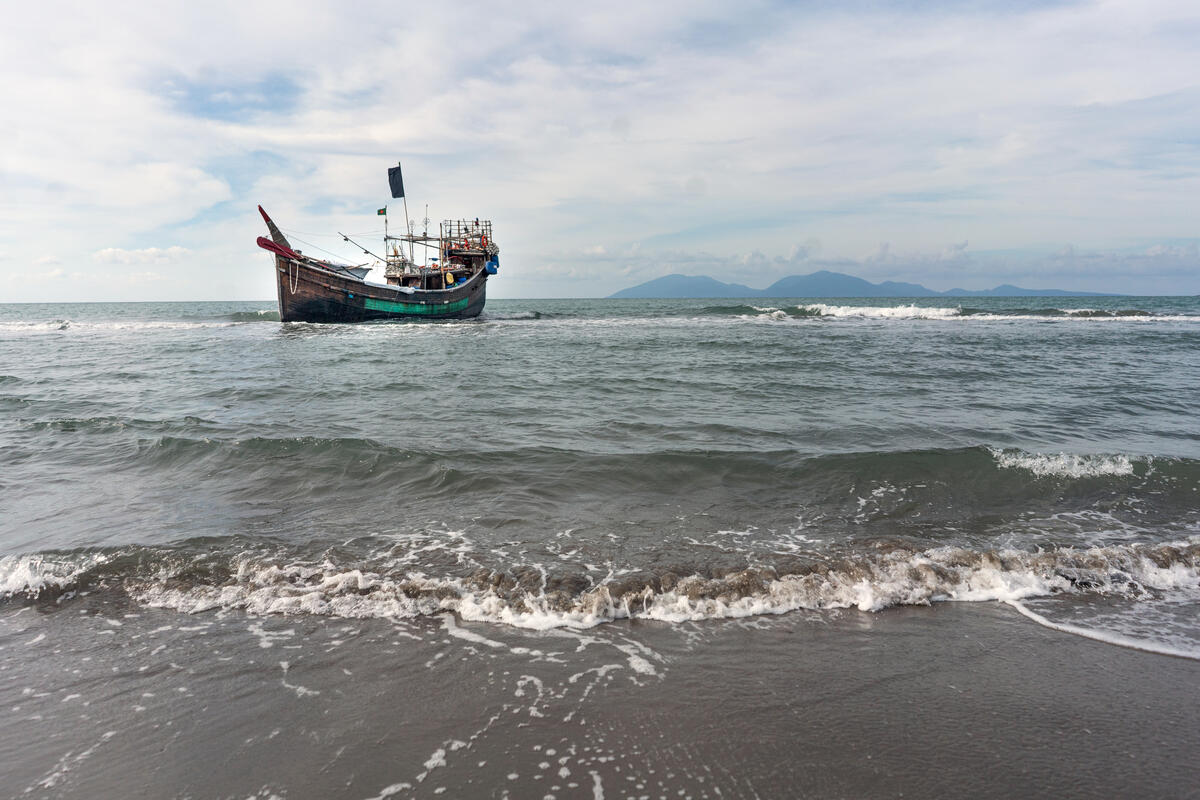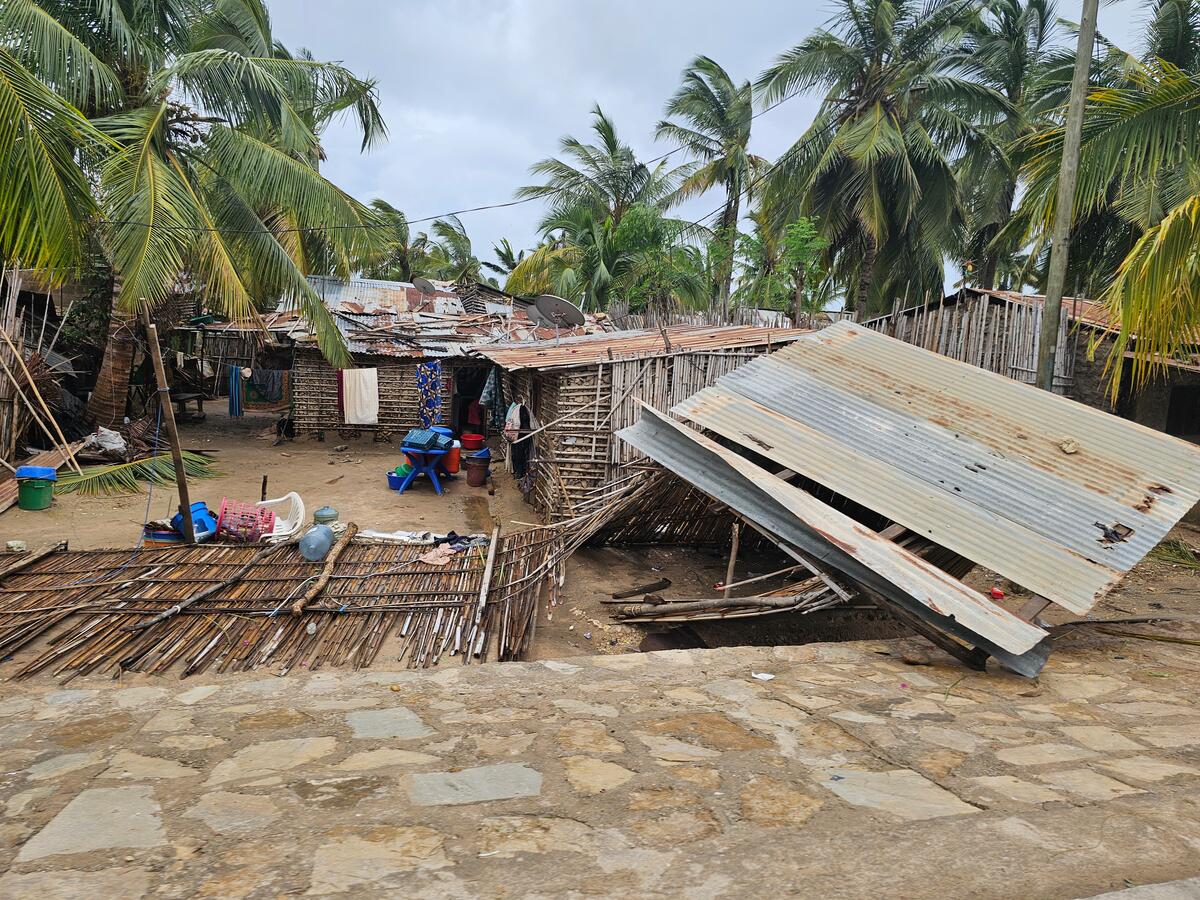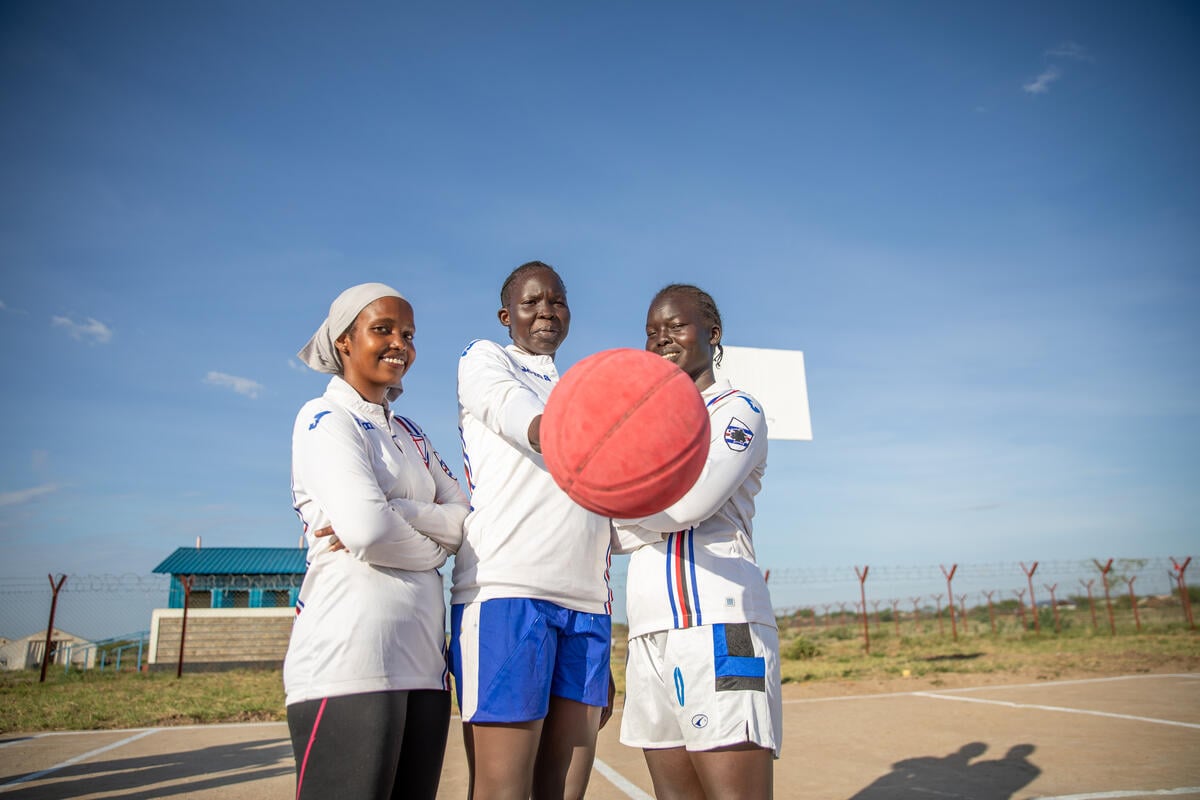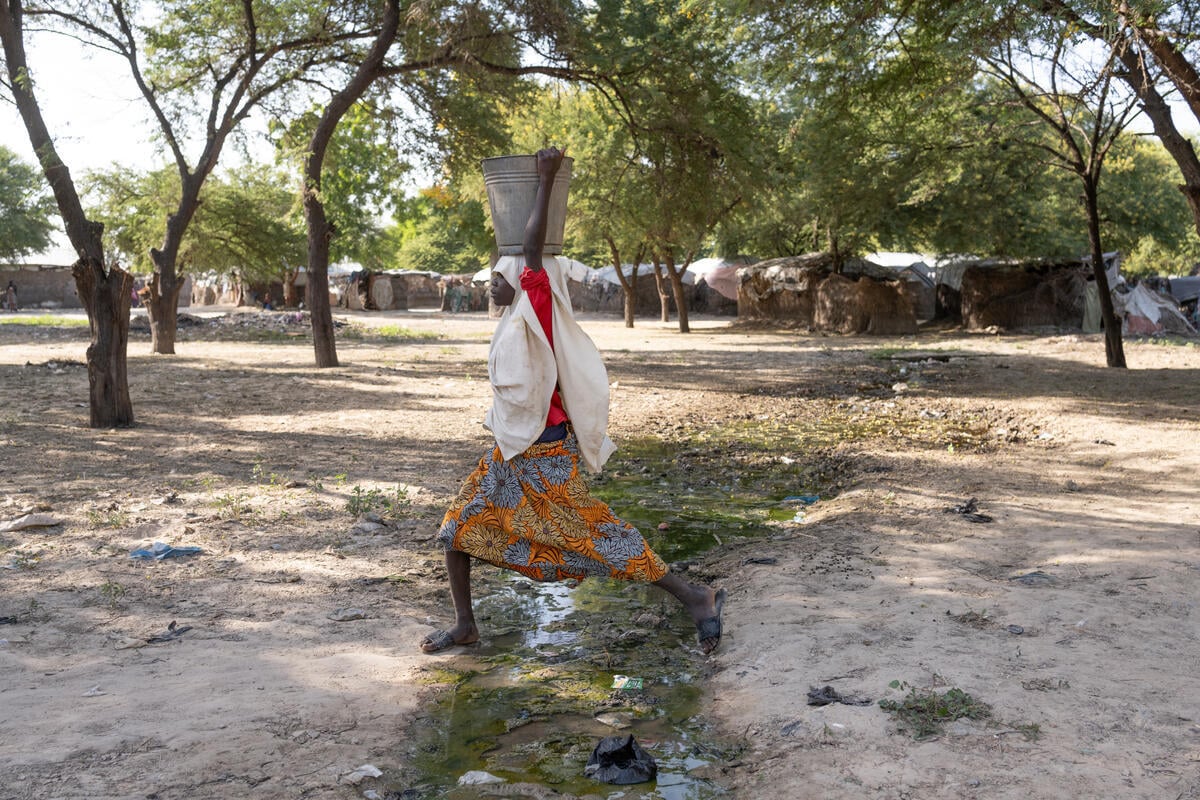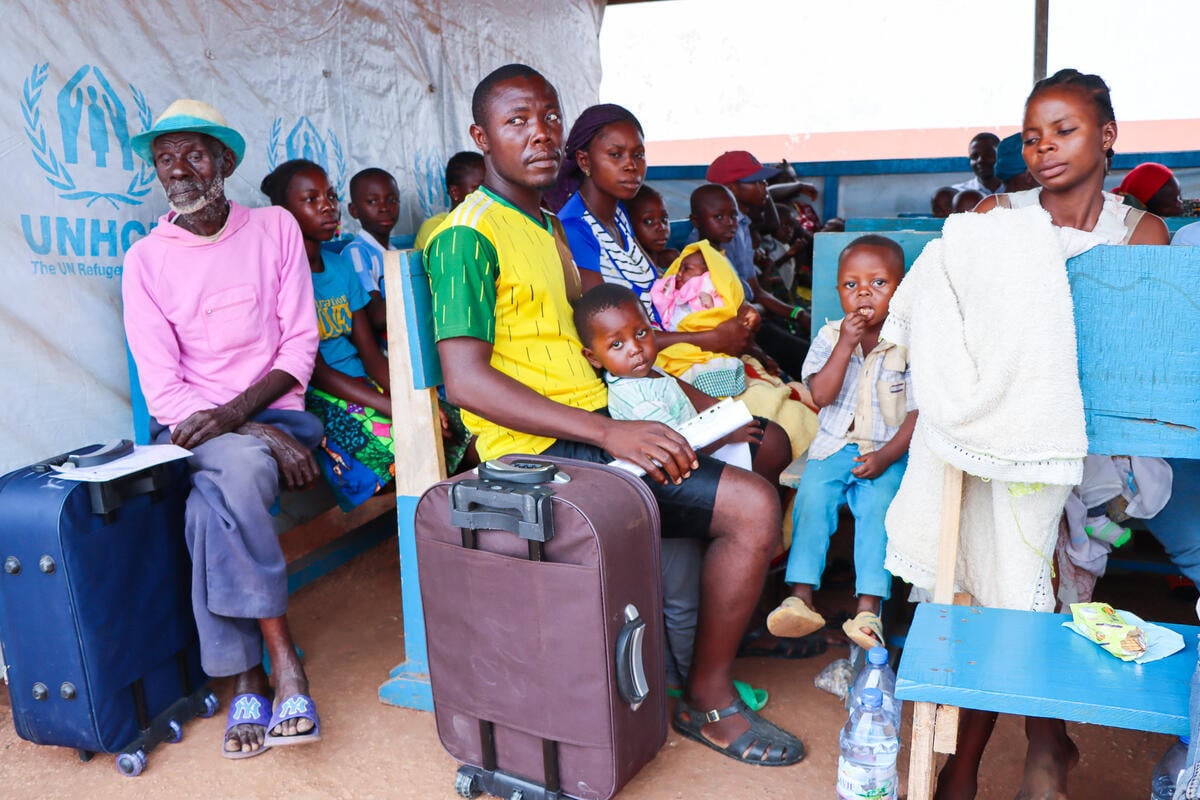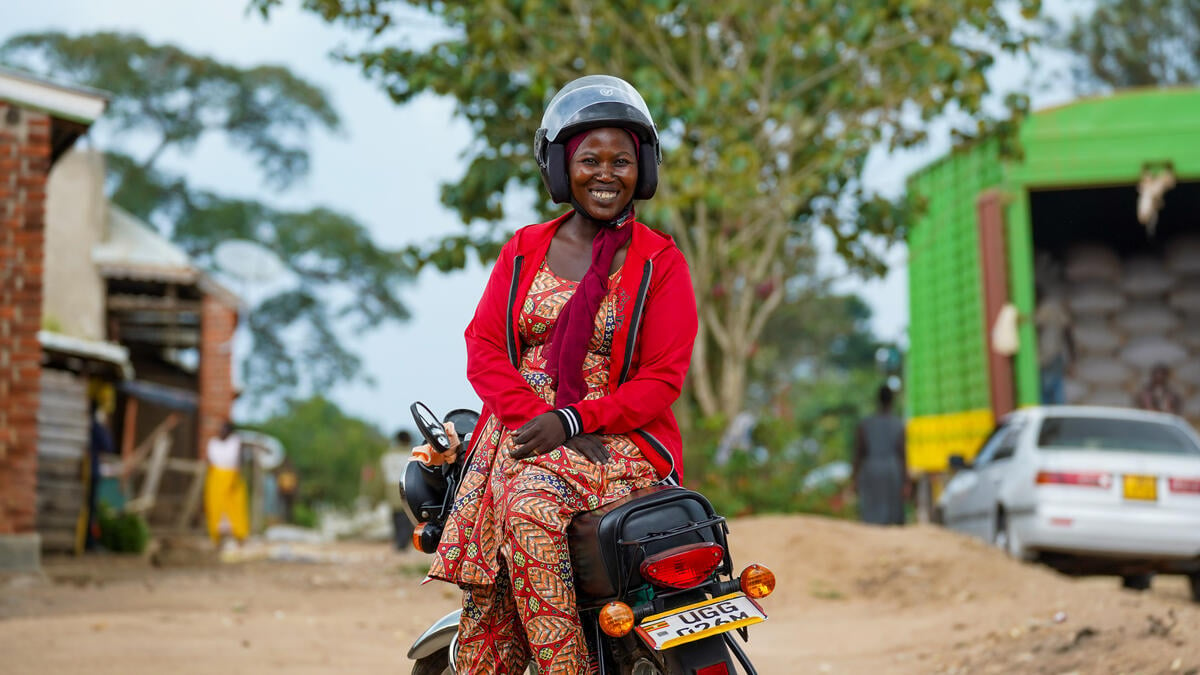Refugees discover benefits of insect farming in Zimbabwe
Refugees discover benefits of insect farming in Zimbabwe
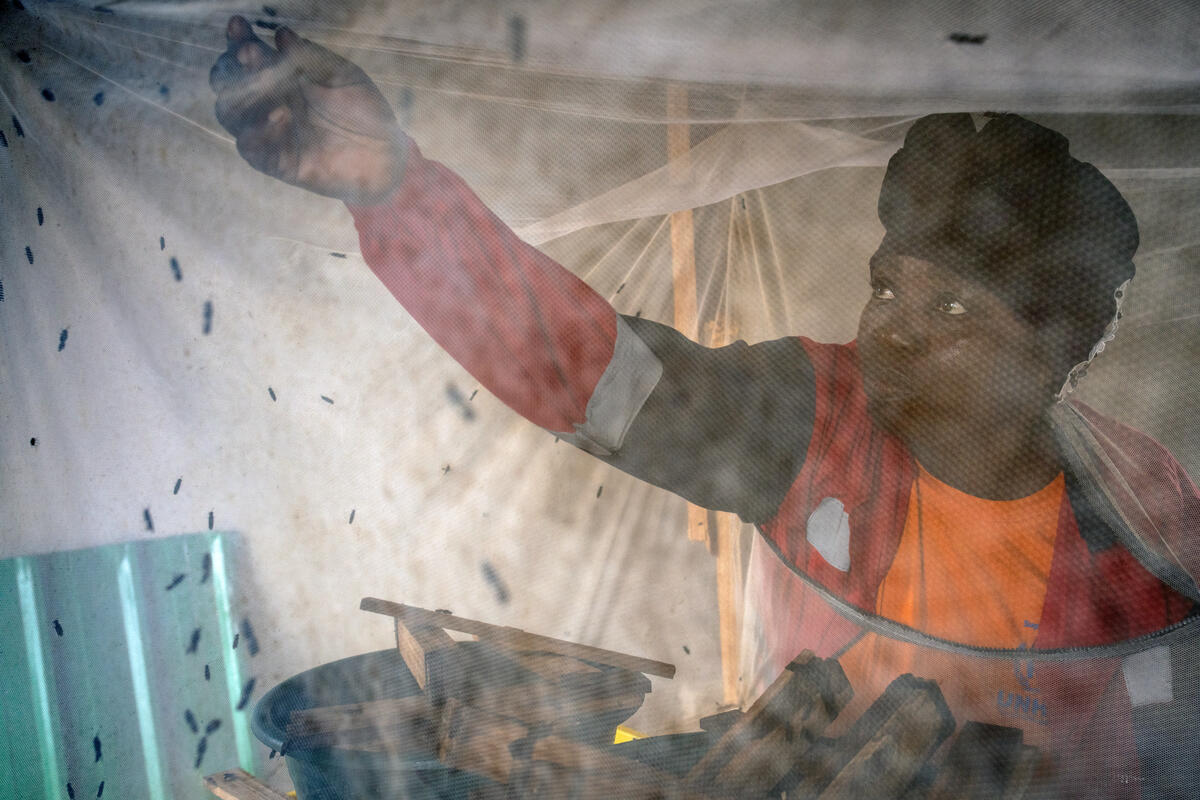
Francine Mashimango checks on the black soldier flies at the centre for insect farming in Tongogara refugee settlement.
Every day now, Francine, 49, walks 15 minutes from her home in Tongogara refugee settlement in south-eastern Zimbabwe to a centre for insect farming that houses black soldier flies in cages made of wooden sticks and mosquito nets. She checks the temperature, cleans the cages and feeds the fly larvae organic waste such as vegetable scraps.
The maggots are used to make a cheaper, protein-rich alternative to traditional animal feed that Francine feeds to her chickens. The benefits, both for them and for her family, have been transformative.

Francine feeds her chickens with maggots from the black soldiers flies in her yard at Tongogara.
“The chickens gain weight faster when they eat maggots as they contain a lot of proteins,” she explains. “So, I can raise more chickens and sell more of them, and with the money, I can buy clothes and shoes for my children.”
Francine had around 50 chickens but has 24 left after she sold half of them to other refugees and local families a few weeks ago. “I am happy I am self-reliant,” she says proudly. “When you are involved in a project like this, it really encourages you to work harder because you don’t want to depend on assistance and you know what to do during the day, you have a purpose.”
A sustainable livelihood
In early 2022, UNHCR, the UN Refugee Agency, partnered with the World Bank and Chinhoyi University of Technology, about 120 kilometres away from Zimbabwe’s capital Harare, to promote insect farming at Tongogara as an innovative and sustainable livelihood activity. The settlement hosts some 16,000 refugees mainly from Burundi, the Democratic Republic of the Congo, Mozambique and Rwanda and is increasingly exposed to extreme weather linked to climate change such as cyclones and scorching temperatures.
Insect farming was chosen because it requires little land, water, machinery or agrochemicals. The black soldier fly maggots are used as a substitute for soya beans in animal feed, in combination with locally-grown crops such as maize, wheat bran and duckweed.
The World Bank estimates that the global market for insects as food for both animals and humans will be worth up to $8 billion by 2030 and that insect farming can create green jobs, diversify livelihoods, improve food security and strengthen local economies. The environmental benefits could also be significant as the insects feed on organic waste and require few other natural resources compared to conventional farming, resulting in far lower carbon emissions.
In addition to the project in Tongogara, UNHCR and the World Bank are running insect farming projects involving refugees in other climate-vulnerable settings in Malawi, Kenya and South Sudan and plan to start similar initiatives in Chad, Ethiopia, Uganda and Mexico.
Francine was among 17 refugees – seven of them women – and 30 locals from the host community who have been trained to breed the flies and maggots. Mozambican Peter Chakamba, the refugee leader for the insect farming project, says collaborating on the project has reinforced bonds between the host community and the refugees. “We’ve been trained together, and we work together as a group. None of us is sitting doing nothing, we all contribute to the project.”
Francine concedes that she was suffering from anxiety and depression before getting involved in insect farming. “I had too much time on my hands to think about my husband. He was kidnapped in eastern DRC by armed men. That's when I decided to run away with the children because I thought they would come back to take us. I have not heard of my husband since, I don’t know if he is still alive.”
Scaling up
Funding limitations mean that the insect breeding project in Tongogara is still operating on a small scale with the fly larvae mainly used to feed chickens. But over the next three years, the aim is to train 1,000 refugees from Tongogara and another 300 people from the local community to produce enough flies and maggots to replace soya bean in feed for other livestock, such as pigs and goats, as well as biofertilizer for wider markets.
In the meantime, the project has faced some challenges, including keeping the black soldier flies alive in an environment where temperatures often reach 45°C in the summer. The refugees are trained to spread sand and water in the room where the flies are bred to lower the temperature and maintain humidity levels, but this is not always enough to combat the heat explains Lovemore Dumba, a livelihood officer with UNHCR. “Last year, one morning we woke up and went to check on the flies and most of them had died because of the high temperature of some 46°C,” he says.

The World Bank estimates that the global market for insects as food for both animals and humans will be worth up to $8 billion by 2030.
Additional funds from donors would allow for the installation of a hybrid temperature control system at the insect farming centre that would use biogas in the winter and an air-conditioned container for the warmer seasons. The construction of a storeroom to maintain breeding stock in good conditions and breeding boxes for the flies are also urgently needed.
“Despite the challenges, I see a lot of potential in this project,” says Dumba. “We already have large companies in Harare buying maggots from established farmers. For a tonne of maggots, they pay between $800 and $1,000. If refugee farmers get to that level, we know we will be providing them with more self-reliance and economic inclusion without major additional costs.”
Francine and her fellow refugees share Dumba’s ambition and hope to one day sell their maggots to farmers in the region. “You have to dream big,” she says. “We can do it together.”
I am happy I am self-reliant.





